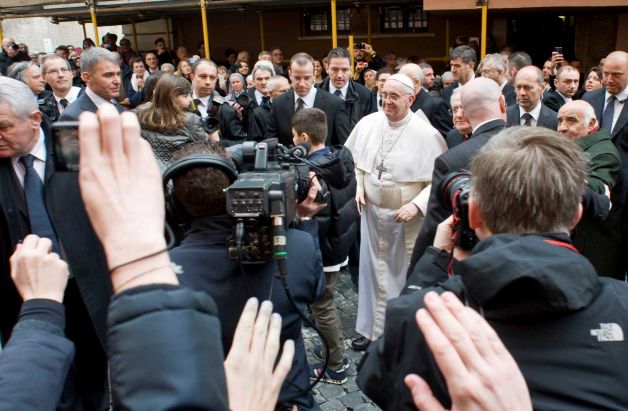Five Ways to Prepare for Easter
 Thursday, March 28, 2013 at 07:56AM
Thursday, March 28, 2013 at 07:56AM Lent is officially over, the grocery store is full of candy (and the fake grass stuff that ends up all over your living room floor) and Easter is almost here. How do you prepare for it?

You could do nothing and just enjoy the day- that's certainly an option.
You could overprepare to the point of being stressed by the existence of Easter- that's another option.
Or, maybe you could thoughtfully point yourself in a direction that allows for maximum reflection on what Christians believe is the most important and solemn holiday of the year. I'm sure you aren't surprised that I'm going to recommend this final mode of prep so here goes:
1. Review your local church's services. Most churches offer some kind of "triduum" services- Holy Thursday, Good Friday and Easter Sunday. Triduum is Latin for "three days" and implies a set of services that flow from one to the other. I'm Catholic so our triduum features the following:
Holy Thursday: Mass that includes a washing of the feet of 12 parishioners. I always look forward to seeing whose feet will be washed each year. The altar is then stripped, symbolizing that Good Friday is right around the corner. Our family then visits several local churches to pray, a tradition that inner city Catholics have carried on for centuries. I guess it started in inner cities because most have a ton of churches to visit by walking.
Good Friday: Either the stations of the cross or a church service whereby a cross is venerated. Churches do this in their own way- some provide one huge cross for people to kiss or kneel in front of while others coordinate people into lines so that many different crosses can be venerated. This service is very solemn.
Easter Vigil (Saturday Night) / Easter Sunday: I love the Easter vigil services. In the Catholic tradition they take several hours and are rich in symbolism. You get it all- candles, fire, water, oil, song, etc. New Christians are baptized and welcomed into the church, something my wife Cary did some 17 years ago. It's pretty awesome and the church is redecorated to symbolize Easter joy.
2. Get away. Believe it or not, sometimes it's better to be anonymous for a big religious holiday. My friend J.B. Wood likes to visit a new church so that it's like a pilgrimage or sorts. Being in a new worship space can give you a fresh set of eyes.
3. Rest. You may be going into Easter with a sense of exhaustion so be sure to take naps, enjoy quiet mornings and take it easy.
4. Give yourself permission to eat simply. My friend Fran is planning on having a bean casserole with frozen vegetables and potatoes from a box. It's easy and I'm sure will taste delicious. Don't feel like you have to go crazy in order to enjoy Easter- find what works for you.
5. Engage with the Scripture story of the Resurrection. When was the last time you sat quietly and read one of the Gospel accounts of the Resurrection? Read it slowly, maybe two times if necessary.
These are five things that work for me.
How will you prepare for Easter?
Photo courtesy of FT



